

Conflicts and nuclear risks: new equilibria vs. new dangers

In memory of Nicola Cufaro Petroni
October 6-8 2023, Castiglioncello (LI), Italy
The Unione Scienziati Per Il Disarmo (USPID) and the Pugwash Conferences on Science and World Affairs are happy to announce the
organized in collaboration with the Municipality of Rosignano Marittimo, the Interdisciplinary Center of Sciences for Peace of the University of Pisa, the Interdepartmental Research Center for Peace of the University of Bari and the Interdisciplinary Group on Science Technology and Society of the CNR Pisa Research Area.
The planned 2021 edition was held in a minimal, online-only form because of the travel restrictions, but we held a full conference in 2022. Although traditionally biennal, we will hold a 2023 edition, resuming the odd years phase. The focus wil be on
“Conflicts and nuclear risks: new equilibria vs. new dangers”
and will be held from Oct. 6 to Oct. 8, 2023 in Castiglioncello, Livorno, Italy. It is dedicated
In memory of Nicola Cufaro Petroni
who recently and prematurely passed away and gave enormous contributions to USPID and to disarmament in general.
The conference will be held at the traditional venue, Castello Pasquini in Castiglioncello.
This is an in-person meeing, but a zoom connection will also be available to allow remote participation.
The arrival of the participants is scheduled for Thursday, Oct 5 (afternoon) and the departure for Sunday, October 8 (morning).
Contact information: +39-050-2214341; segreteria.nazionale@uspid.org,
On the evening of Friday Oct 6, a public event in Italian will take place at Castello Pasquini:
Conflitti attuali e rischi nucleari
A dialogue with On. Laura Boldrini, Prof. Paolo Cotta Ramusino, Prof. Francesco Forti, Prof. Enza Pellecchia, conducted by Le Scienze journalist Giovanni Spataro.
The Castiglioncello 2023 organizing committee: Marilù Chiofalo, Giuliano Colombetti, Paolo Cotta Ramusino, Francesco Forti, Floriana Giannuzzi, Diego Latella, Francesco Lenci, Enza Pellecchia, Alice Saltini.
The following is a partial list of personalities who have participated at past USPID Castiglioncello Conferences: Hussain Al-Shahristani (former Minister for Energy, former Minister for Oil, former Minister for Higher Education of Iraq), Edoardo Amaldi(co-Founder of CERN, ESA and INFN), Georgi Arbatov(founder and Director of the Institute for US and Canadian Studies), Alexei Arbatov(former member of the Duma), Sen.Luigi Anderlini, Daniel Bovet (Nobel Prize for Physiology and Medicine in 1957), Paul Brown(Livermore National Labs.), Lord Browne of Ladyton(former Secretary of State for Defense of UK), Sergio Duarte(President of the Pugwash Conferences on Science and World Affairs), Richard Garwin, On.Giorgio La Malfa, On.Federica Mogherini(former Italian Minister for Foreign Affairs and former European High Representative for Foreign Affairs and Security Policy), On.Giorgio Napolitano (former Presidente della Republica Italiana) Joseph Rotblat(signatory of the Russell-Einstein Manifesto (1955), founder of Pugwash Conferences on Science and World Affairs and recipient of the Nobel Prize for Peace in 1995, together with Pugwash), Jack Steinberger(Nobel Prize for Physics in 1988).
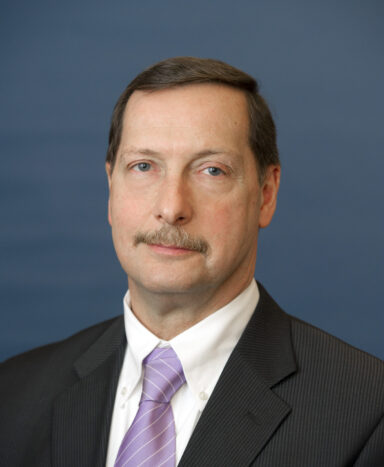
Alexei Arbatov is the head of the Center for International Security at the Primakov National Research Institute of World Economy and International Relations of the Russian Academy of Sciences. Arbatov has served on numerous boards and councils, including the Advisory Council of the Russian Ministry of Foreign Affairs, the governing board of the Stockholm International Peace Research Institute, the Center for Nonproliferation Studies at the Monterey Institute, and the Russian Council for Foreign and Defense Policy. Formerly, Dr. Arbatov was a member of the official delegation for START I negotiations, vice chairman of the liberal YABLOKO Party, and deputy chairman of the Duma Defense Committee. Arbatov is the author of numerous books, articles and papers on issues of global security, strategic stability, non-proliferation and disarmament, Russian military reform and various current domestic and foreign political issues, published in Russia and abroad.
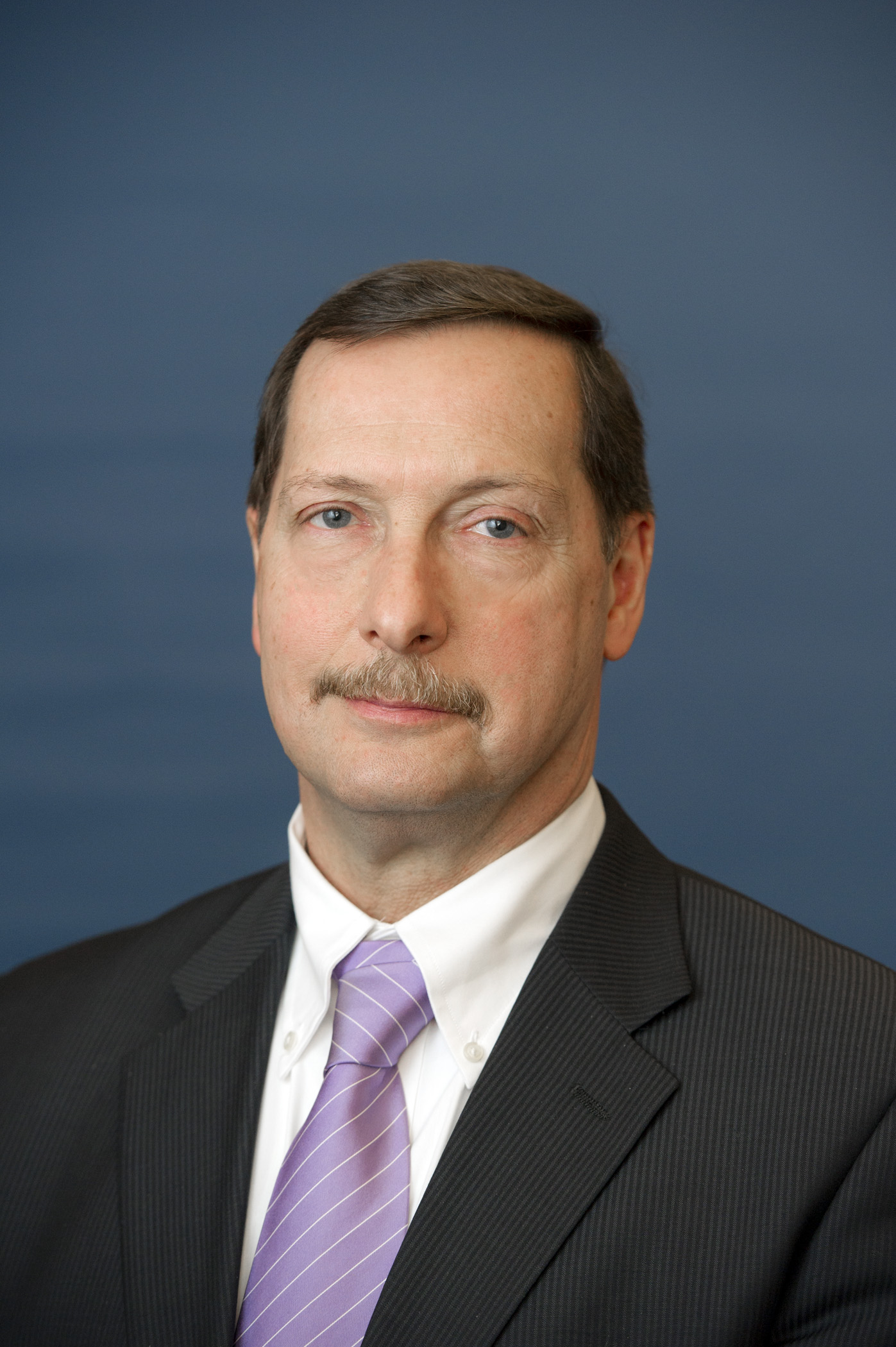
Alexei Arbatov is the head of the Center for International Security at the Primakov National Research Institute of World Economy and International Relations of the Russian Academy of Sciences. Arbatov has served on numerous boards and councils, including the Advisory Council of the Russian Ministry of Foreign Affairs, the governing board of the Stockholm International Peace Research Institute, the Center for Nonproliferation Studies at the Monterey Institute, and the Russian Council for Foreign and Defense Policy. Formerly, Dr. Arbatov was a member of the official delegation for START I negotiations, vice chairman of the liberal YABLOKO Party, and deputy chairman of the Duma Defense Committee. Arbatov is the author of numerous books, articles and papers on issues of global security, strategic stability, non-proliferation and disarmament, Russian military reform and various current domestic and foreign political issues, published in Russia and abroad.
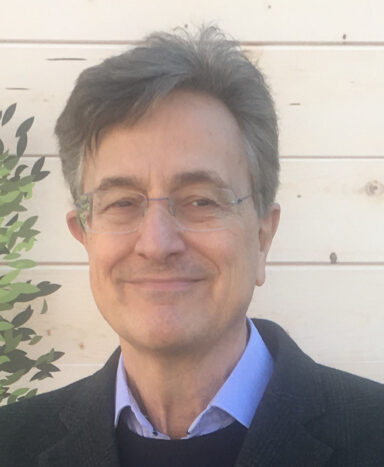
Giuseppe Attardi is a retired full professor of Computer Science at the University of Pisa. For 45 years he has been dealing with Artificial Intelligence and the technologies necessary to develop it. In the 70s he worked at the AI Lab at MIT, then at the Sony Paris Research Laboratory, at ICSI in Berkeley and at Yahoo Research Barcelona. He developed Omega, a forerunner of ontological languages for the Web; CMM, the memory manager used in the Java programming language used in web applications; DeSR, a grammar analyzer for natural language; WikiExtractor, used to build language models from Wikipedia texts. He participated in the development of Arianna, the first Italian search engine. He is founder or partner of some startups, in Italy and Spain. He was involved in the implementation of fiber optic networks of the University of Pisa and the national research network GARR. He promoted the spread of the Internet in Italy. He was responsible for the implementation of the GARR cloud platform. He contributed to the drafting of the Italian strategy on Artificial Intelligence and to the birth of the first national doctorate in Artificial Intelligence. The main focus of his current research is the understanding of human language, using Deep Learning techniques.
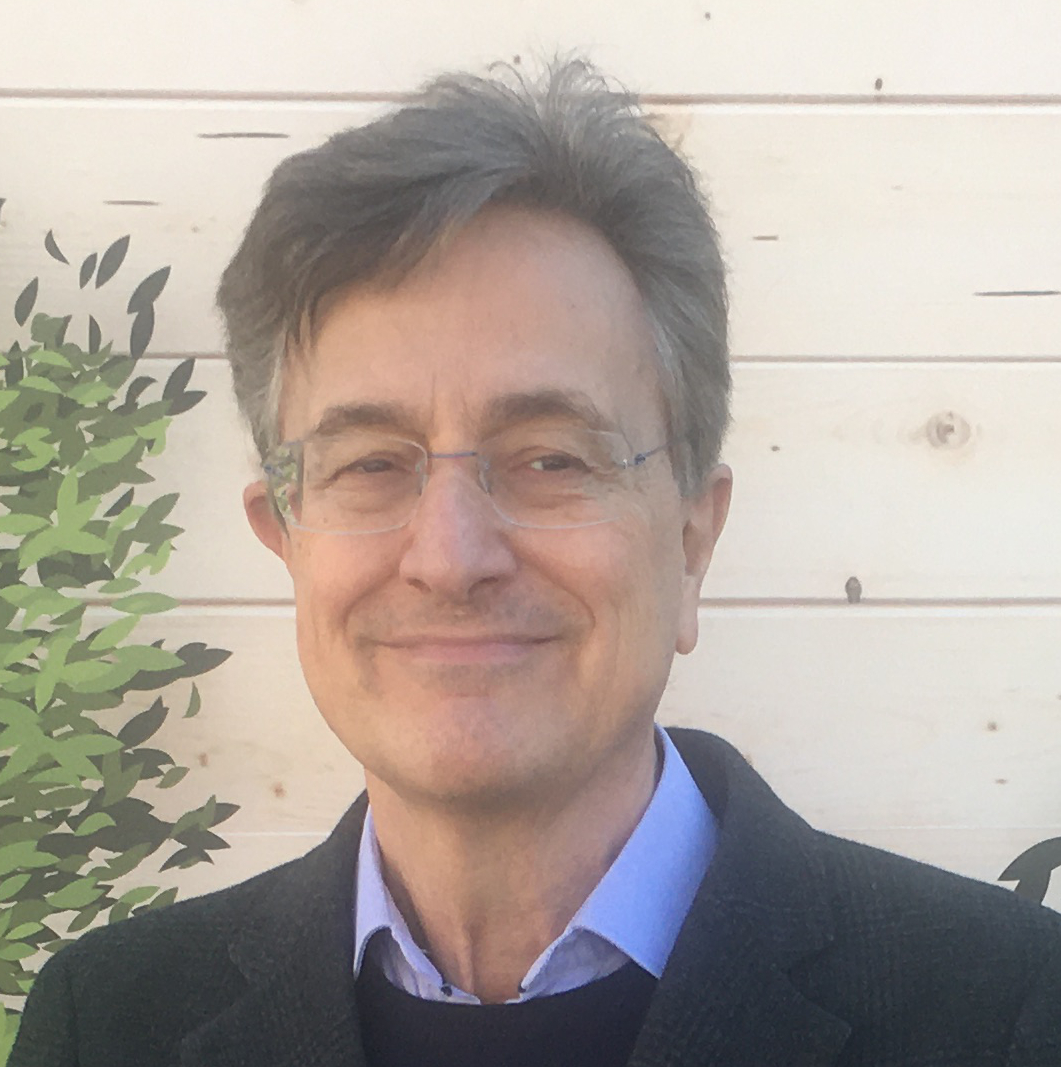
Giuseppe Attardi is a retired full professor of Computer Science at the University of Pisa. For 45 years he has been dealing with Artificial Intelligence and the technologies necessary to develop it. In the 70s he worked at the AI Lab at MIT, then at the Sony Paris Research Laboratory, at ICSI in Berkeley and at Yahoo Research Barcelona. He developed Omega, a forerunner of ontological languages for the Web; CMM, the memory manager used in the Java programming language used in web applications; DeSR, a grammar analyzer for natural language; WikiExtractor, used to build language models from Wikipedia texts. He participated in the development of Arianna, the first Italian search engine. He is founder or partner of some startups, in Italy and Spain. He was involved in the implementation of fiber optic networks of the University of Pisa and the national research network GARR. He promoted the spread of the Internet in Italy. He was responsible for the implementation of the GARR cloud platform. He contributed to the drafting of the Italian strategy on Artificial Intelligence and to the birth of the first national doctorate in Artificial Intelligence. The main focus of his current research is the understanding of human language, using Deep Learning techniques.
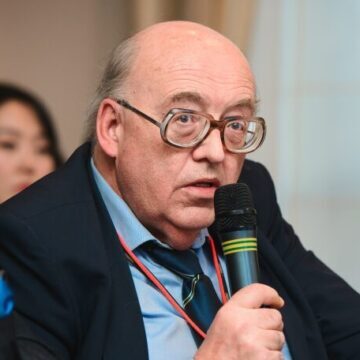
Sergey Batsanov, retired Soviet/Russian ambassador and negotiator on arms control and disarmament, is member of the Council of the Pugwash Conferences on Science and World Affairs and Director of the International Pugwash Geneva Office; he has been one of the key authors of the international Convention for the Prohibition of Chemical Weapons and served as Director of the Organisation for the Prohibition of Chemical Weapons (OPCW) from 1993 to 2004; from 1989 to 1993 he was representative of the Soviet Union / Russian Federation to the Conference on Disarmament in Geneva. He is member of the European Leadership Network.

Sergey Batsanov, retired Soviet/Russian ambassador and negotiator on arms control and disarmament, is member of the Council of the Pugwash Conferences on Science and World Affairs and Director of the International Pugwash Geneva Office; he has been one of the key authors of the international Convention for the Prohibition of Chemical Weapons and served as Director of the Organisation for the Prohibition of Chemical Weapons (OPCW) from 1993 to 2004; from 1989 to 1993 he was representative of the Soviet Union / Russian Federation to the Conference on Disarmament in Geneva. He is member of the European Leadership Network.

Giuseppe Cima is retired, formerly at the Fusion Research Center, UT Austin, TX. As a physicist he researched nuclear fusion for energy in various research laboratories around the world. His scientific and engineering experience includes: plasma theory and experimentation, mechanical, electrical and electronic design of fusion relevant plasma generation and diagnostic equipment. He has published around 100 papers on these subjects in international peer reviewed journals. He has been employed by EURATOM, ENEA, CNR and for the longest time as a research scientist by the Fusion Research Center of the University of Texas in Austin. He has recurrently taken up positions as consultant and/or member of board of directors in various enterprises and started a US company in the field of industrial automation through imaging. He cultivate numerous side interests: sailing, mountaineering, music, architecture, history of science and technology, clock theory and experimentation. Environmental studies have accompanied him for most of his life. He now reside in Venice, Italy.

Giuseppe Cima is retired, formerly at the Fusion Research Center, UT Austin, TX. As a physicist he researched nuclear fusion for energy in various research laboratories around the world. His scientific and engineering experience includes: plasma theory and experimentation, mechanical, electrical and electronic design of fusion relevant plasma generation and diagnostic equipment. He has published around 100 papers on these subjects in international peer reviewed journals. He has been employed by EURATOM, ENEA, CNR and for the longest time as a research scientist by the Fusion Research Center of the University of Texas in Austin. He has recurrently taken up positions as consultant and/or member of board of directors in various enterprises and started a US company in the field of industrial automation through imaging. He cultivate numerous side interests: sailing, mountaineering, music, architecture, history of science and technology, clock theory and experimentation. Environmental studies have accompanied him for most of his life. He now reside in Venice, Italy.
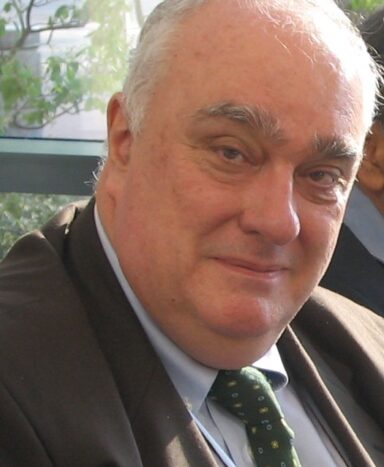
Paolo Cotta Ramusino is Secretary General of Pugwash Conferences on Science and World Affairs and Member of the Pugwash Executive Committee. He is Professor of Mathematical Physics at the University of Milan. He was Director of the Landau Network's International Disarmament and Security Program - Centro Volta. He was the National Secretary of USPID, and he is currently a member of the Scientific Council of USPID.
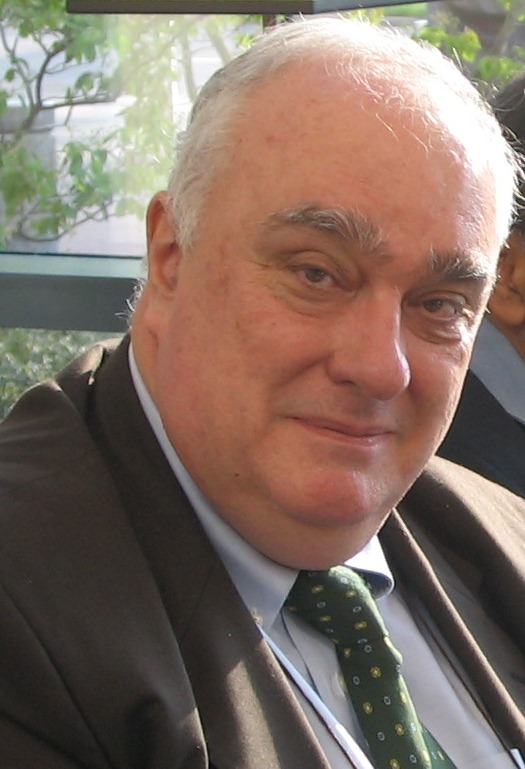
Paolo Cotta Ramusino is Secretary General of Pugwash Conferences on Science and World Affairs and Member of the Pugwash Executive Committee. He is Professor of Mathematical Physics at the University of Milan. He was Director of the Landau Network's International Disarmament and Security Program - Centro Volta. He was the National Secretary of USPID, and he is currently a member of the Scientific Council of USPID.
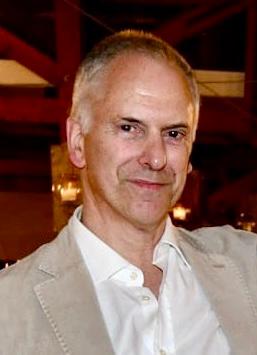
Marco Doria is full professor of Economic History at the Department of Economics of the University of Genoa, where he teaches History of Economy, History of International Economic Relations and Explorations in Economic History. After graduating in Genoa in 1981, in 1989 he obtained the PHD in history at the European University Institute. His main research interests concern the history of industry and business, studied both from an overall, macroeconomic, and sectoral and corporate perspective. The sectors analyzed are in particular those of the mechanical, shipbuilding and iron and steel industries. Specific studies have been dedicated to public enterprises. He is president of the Italian Society of Economic Historians and member of the management committee of the journal “Società e storia”.

Marco Doria is full professor of Economic History at the Department of Economics of the University of Genoa, where he teaches History of Economy, History of International Economic Relations and Explorations in Economic History. After graduating in Genoa in 1981, in 1989 he obtained the PHD in history at the European University Institute. His main research interests concern the history of industry and business, studied both from an overall, macroeconomic, and sectoral and corporate perspective. The sectors analyzed are in particular those of the mechanical, shipbuilding and iron and steel industries. Specific studies have been dedicated to public enterprises. He is president of the Italian Society of Economic Historians and member of the management committee of the journal “Società e storia”.
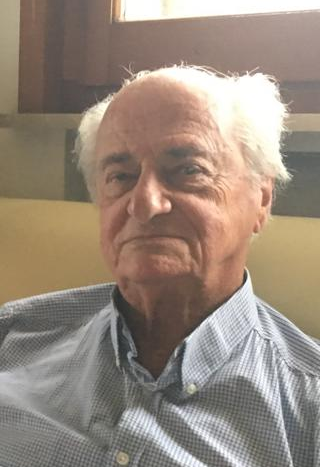
Roberto Fieschi is emeritus professor of physics at the University of Parma. Research mainly on solid state physics. Active also on the popularisation of science and the production of didactic multimedia. He is a member of the Scientific Council of USPID.
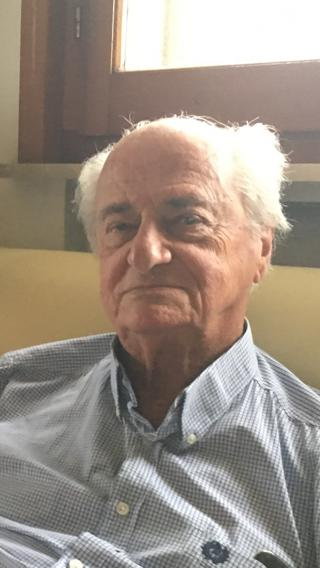
Roberto Fieschi is emeritus professor of physics at the University of Parma. Research mainly on solid state physics. Active also on the popularisation of science and the production of didactic multimedia. He is a member of the Scientific Council of USPID.
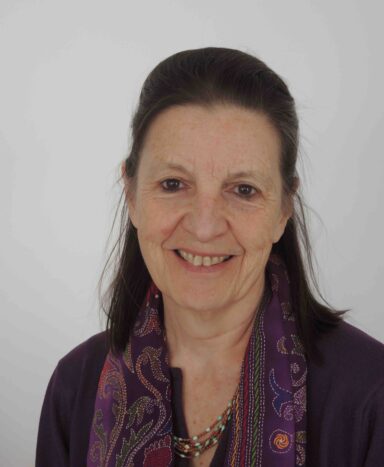
Dr. Venance Journé (Thèse d’Etat in Particle Physics, 1984), is a researcher at the Laboratoire de Météorologie Dynamique in Paris-France. After 12 years as a researcher in high energy physics, she joined the International Center on Environment and Development in Paris, with a focus on socio-economic research on climate change and energy. Her research interests focus on the risks of nuclear energy, climate change. She is also now engaged in scientific mediation in climate and climate modeling issues. Since May 2021, she is an advisor to the French Economic, Social and Environmental Council. Since 1989, member of the Pugwash Conferences on Science and World Affairs. (Executive Committee 1992-2002 - Scientific Council since 2013).
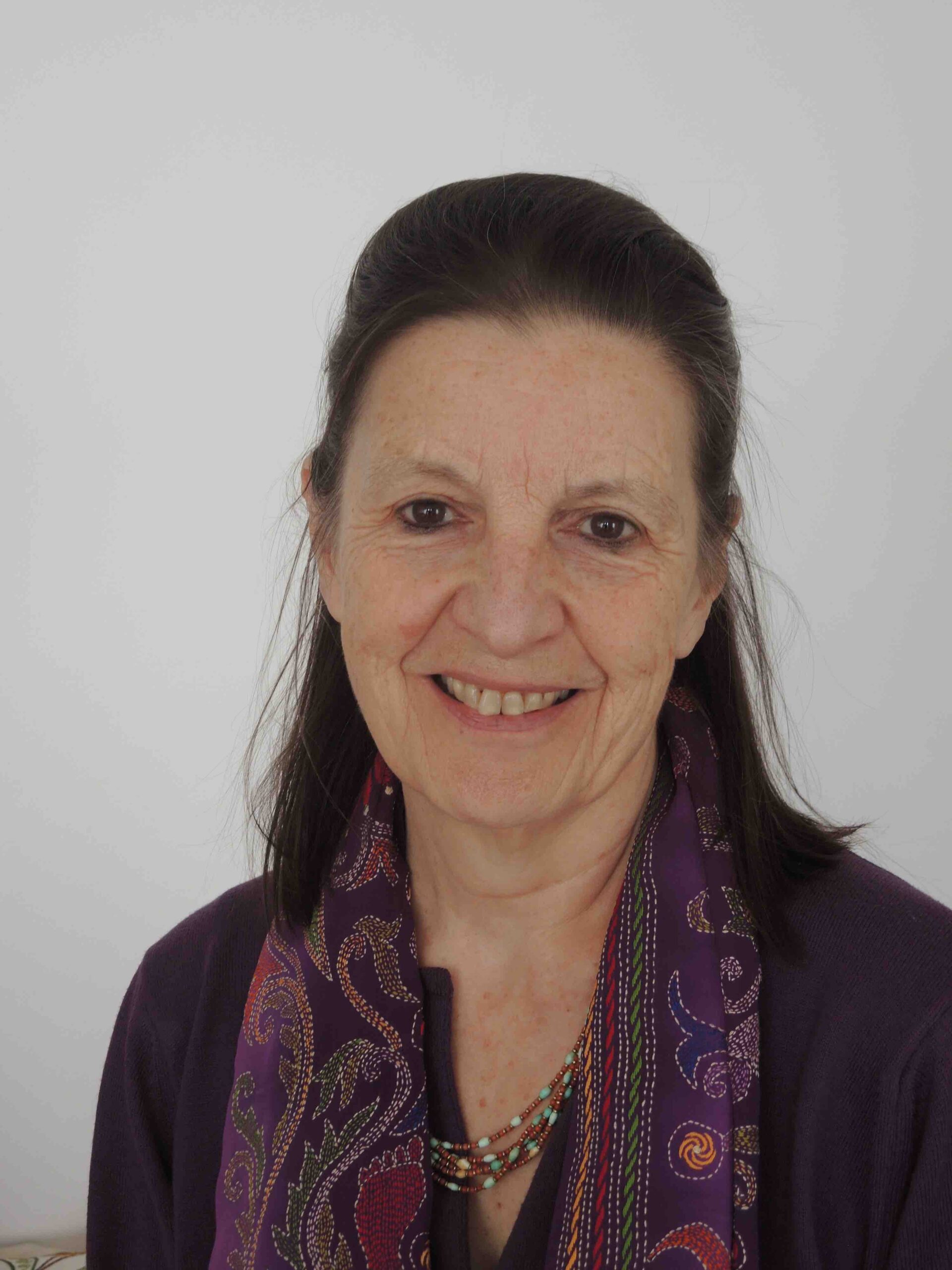
Dr. Venance Journé (Thèse d’Etat in Particle Physics, 1984), is a researcher at the Laboratoire de Météorologie Dynamique in Paris-France. After 12 years as a researcher in high energy physics, she joined the International Center on Environment and Development in Paris, with a focus on socio-economic research on climate change and energy. Her research interests focus on the risks of nuclear energy, climate change. She is also now engaged in scientific mediation in climate and climate modeling issues. Since May 2021, she is an advisor to the French Economic, Social and Environmental Council. Since 1989, member of the Pugwash Conferences on Science and World Affairs. (Executive Committee 1992-2002 - Scientific Council since 2013).
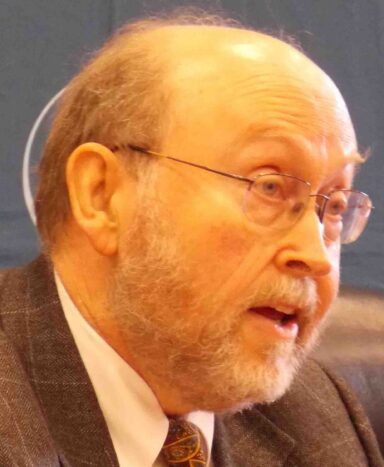
Steven E. Miller is Director of the International Security Program in the Belfer Center for Science and International Affairs at Harvard University’s Kennedy School of Government. He also serves as Editor-in-Chief of the scholarly journal, International Security, and co-editor of the International Security Program's book series, BCSIA Studies in International Security (which is published by The MIT Press). Previously, he was Senior Research Fellow at the Stockholm International Peace Research Institute (SIPRI) in Stockholm, Sweden and he taught Defense and Arms Control Studies in the Department of Political Science at the Massachusetts Institute of Technology. Miller is a Fellow of the American Academy of Arts and Sciences, where he has long been a member of (and formerly chaired) the Committee on International Security Studies (CISS). Along with Professor Robert Rosner of the University of Chicago, he was co-director of the American Academy’s project on The Global Nuclear Future. He is active in the Pugwash Conferences on Science and World Affairs, an international scholarly association based in Rome. He is co-chair of the U.S. Pugwash Committee, a member of the Council of International Pugwash, and Chair of the Executive Committee of International Pugwash. Miller has written extensively on nuclear weapons issues, US security policy, and US foreign policy.
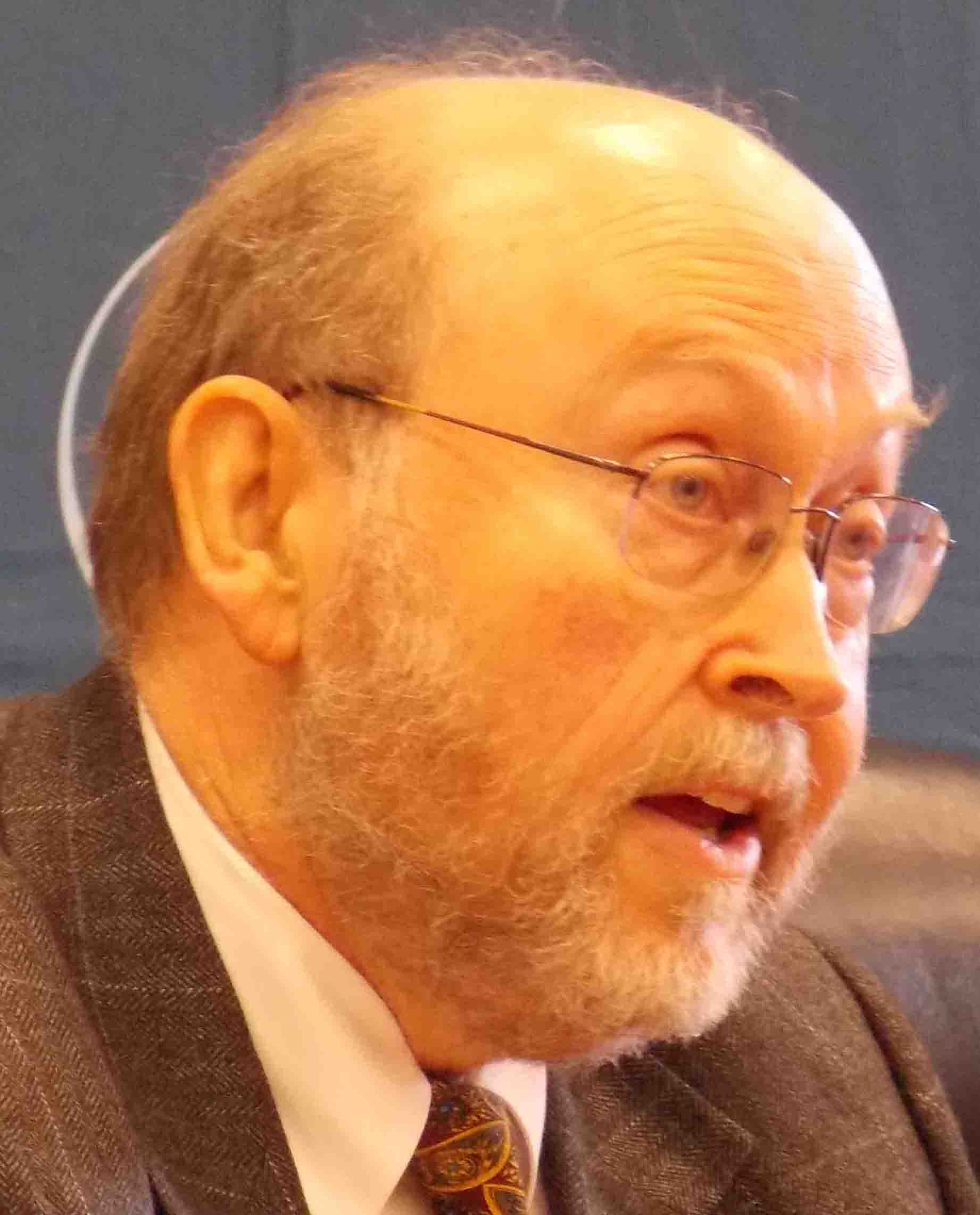
Steven E. Miller is Director of the International Security Program in the Belfer Center for Science and International Affairs at Harvard University’s Kennedy School of Government. He also serves as Editor-in-Chief of the scholarly journal, International Security, and co-editor of the International Security Program's book series, BCSIA Studies in International Security (which is published by The MIT Press). Previously, he was Senior Research Fellow at the Stockholm International Peace Research Institute (SIPRI) in Stockholm, Sweden and he taught Defense and Arms Control Studies in the Department of Political Science at the Massachusetts Institute of Technology. Miller is a Fellow of the American Academy of Arts and Sciences, where he has long been a member of (and formerly chaired) the Committee on International Security Studies (CISS). Along with Professor Robert Rosner of the University of Chicago, he was co-director of the American Academy’s project on The Global Nuclear Future. He is active in the Pugwash Conferences on Science and World Affairs, an international scholarly association based in Rome. He is co-chair of the U.S. Pugwash Committee, a member of the Council of International Pugwash, and Chair of the Executive Committee of International Pugwash. Miller has written extensively on nuclear weapons issues, US security policy, and US foreign policy.
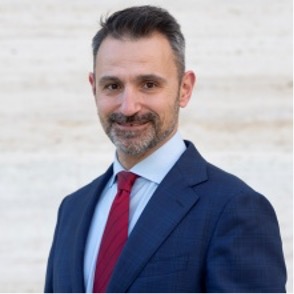
Giacomo Persi Paoli is the Head of the Security and Technology Programme at UNIDIR. His expertise spans the science and technology domain with emphasis on the implications of emerging technologies for security and defence. His recent work focused on arms control, technology horizon scanning, AI and cyber security. Before joining UNIDIR, Persi Paoli was Associate Director at RAND Europe where he led the defence and security science, technology and innovation portfolio as well as RAND's Centre for Futures and Foresight Studies. He served for 14 years as warfare officer in the Italian Navy and has been extensively engaged in small arms and light weapons research in support of UN processes. He holds a PhD in Economics from the University of Rome, Italy and a master's degree in Political Science from the University of Pisa, Italy. He speaks English, French and Italian. Giacomo’s areas of expertise include defence and security science and technology, innovation, emerging technologies, futures and foresight studies, and international security and disarmament.

Giacomo Persi Paoli is the Head of the Security and Technology Programme at UNIDIR. His expertise spans the science and technology domain with emphasis on the implications of emerging technologies for security and defence. His recent work focused on arms control, technology horizon scanning, AI and cyber security. Before joining UNIDIR, Persi Paoli was Associate Director at RAND Europe where he led the defence and security science, technology and innovation portfolio as well as RAND's Centre for Futures and Foresight Studies. He served for 14 years as warfare officer in the Italian Navy and has been extensively engaged in small arms and light weapons research in support of UN processes. He holds a PhD in Economics from the University of Rome, Italy and a master's degree in Political Science from the University of Pisa, Italy. He speaks English, French and Italian. Giacomo’s areas of expertise include defence and security science and technology, innovation, emerging technologies, futures and foresight studies, and international security and disarmament.
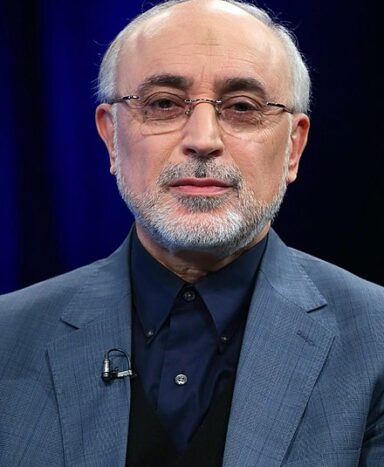
Ali Akbar Salehi is an Iranian academic, diplomat and former head of the Atomic Energy Organization of Iran, who served in this position from 2009 to 2010 and also from 2013 to 2021. He served for the first time as head of the AEOI from 2009 to 2010 and was appointed to the post for a second time on 16 August 2013. Before the appointment of his latter position, he was foreign affairs minister from 2010 to 2013. He was also the Iranian representative in the International Atomic Energy Agency from 1998 to 2003.
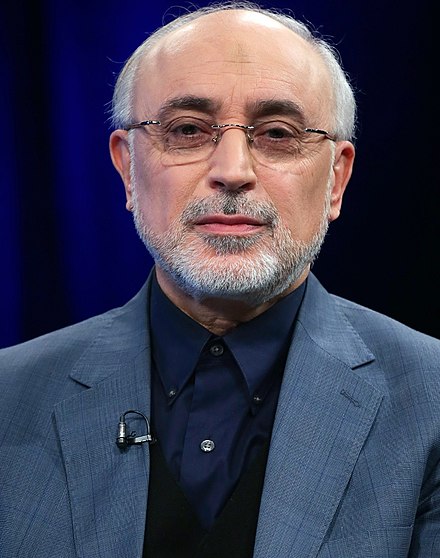
Ali Akbar Salehi is an Iranian academic, diplomat and former head of the Atomic Energy Organization of Iran, who served in this position from 2009 to 2010 and also from 2013 to 2021. He served for the first time as head of the AEOI from 2009 to 2010 and was appointed to the post for a second time on 16 August 2013. Before the appointment of his latter position, he was foreign affairs minister from 2010 to 2013. He was also the Iranian representative in the International Atomic Energy Agency from 1998 to 2003.
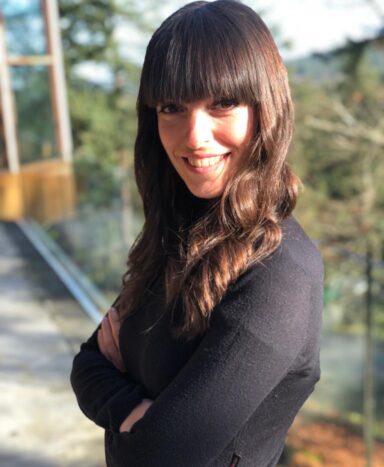
Alice Saltini is Research Coordinator for the European Leadership Network (ELN). She is an expert in nuclear policy and arms control. She coordinates projects for the ELN Global Security program, informing decision-makers on nuclear policy and risk reduction measures, focusing on emerging technologies and their impact in the nuclear domain. In her research, she explores particularly the impact of artificial intelligence on nuclear decision-making and strategic stability. Previously, she completed stints at the CTBTO in the External Relations, Protocol and International Cooperation Section, and at the James Martin Center for Nonproliferation Studies. Alice was also a CTBTO-CENESS Research Fellow. She holds a Master's degree in Russian studies and a Post-Graduate certificate (PG Cert) in Nonproliferation Studies from the Middlebury Institute of International Studies.
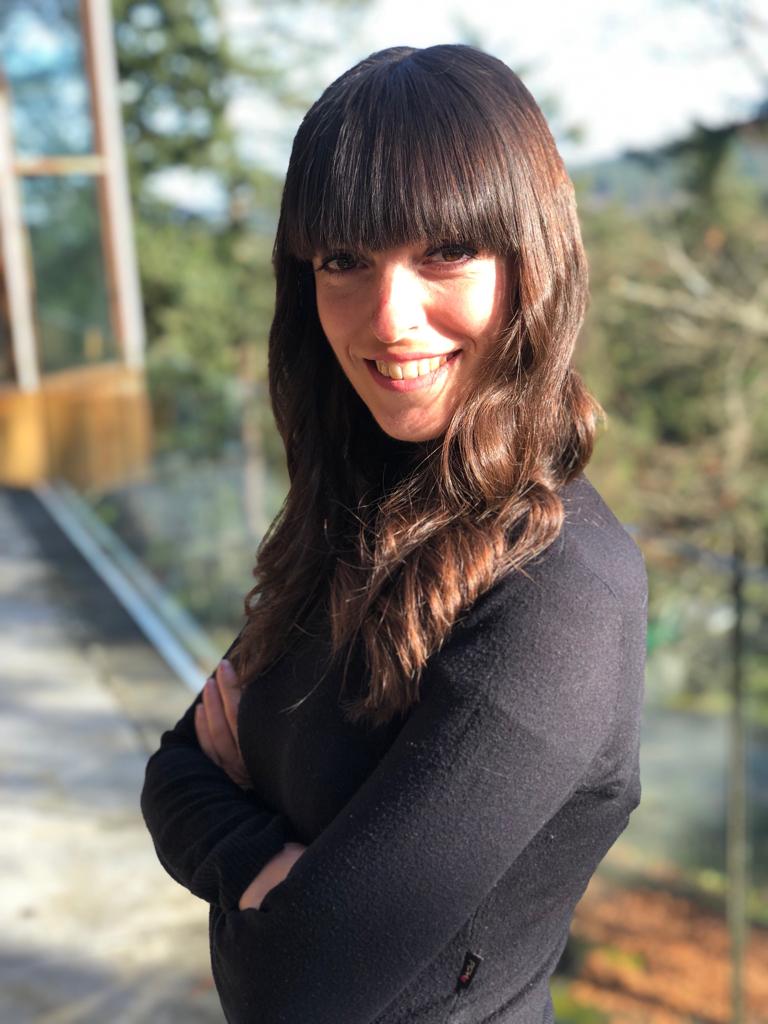
Alice Saltini is Research Coordinator for the European Leadership Network (ELN). She is an expert in nuclear policy and arms control. She coordinates projects for the ELN Global Security program, informing decision-makers on nuclear policy and risk reduction measures, focusing on emerging technologies and their impact in the nuclear domain. In her research, she explores particularly the impact of artificial intelligence on nuclear decision-making and strategic stability. Previously, she completed stints at the CTBTO in the External Relations, Protocol and International Cooperation Section, and at the James Martin Center for Nonproliferation Studies. Alice was also a CTBTO-CENESS Research Fellow. She holds a Master's degree in Russian studies and a Post-Graduate certificate (PG Cert) in Nonproliferation Studies from the Middlebury Institute of International Studies.
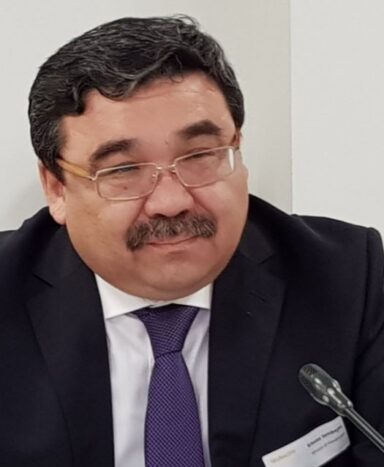
Yerbolat Sembayev is Ambassador Extraordinary and Plenipotentiary of the Republic of Kazakhstan to the Italian Republic and Republic of Malta. He held various positions in the Department of Multilateral Cooperation, the OSCE Department, and the Department of Europe. He worked as First Secretary, Counsellor and Minister-Counsellor of the Embassy of the Republic of Kazakhstan in the Italian Republic. He headed the Department of Multilateral Cooperation of the MFA of the RK, which is responsible for cooperation with international organizations, multilateral structures and secretariats of international treaties. He was appointed as an Ambassador at Large of the Ministry of Foreign Affairs of the Republic of Kazakhstan on Disarmament and Non-Proliferation of Weapons of Mass Destruction.
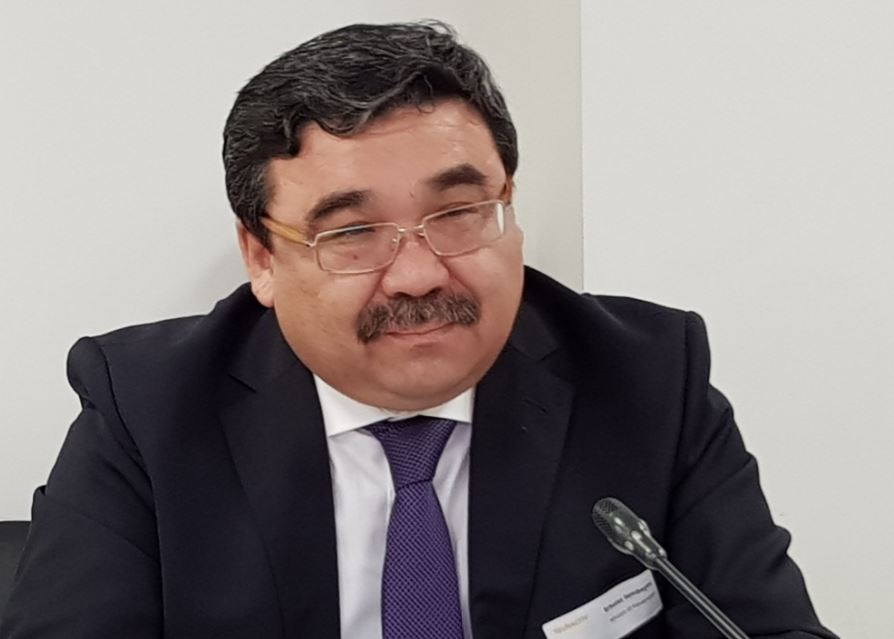
Yerbolat Sembayev is Ambassador Extraordinary and Plenipotentiary of the Republic of Kazakhstan to the Italian Republic and Republic of Malta. He held various positions in the Department of Multilateral Cooperation, the OSCE Department, and the Department of Europe. He worked as First Secretary, Counsellor and Minister-Counsellor of the Embassy of the Republic of Kazakhstan in the Italian Republic. He headed the Department of Multilateral Cooperation of the MFA of the RK, which is responsible for cooperation with international organizations, multilateral structures and secretariats of international treaties. He was appointed as an Ambassador at Large of the Ministry of Foreign Affairs of the Republic of Kazakhstan on Disarmament and Non-Proliferation of Weapons of Mass Destruction.
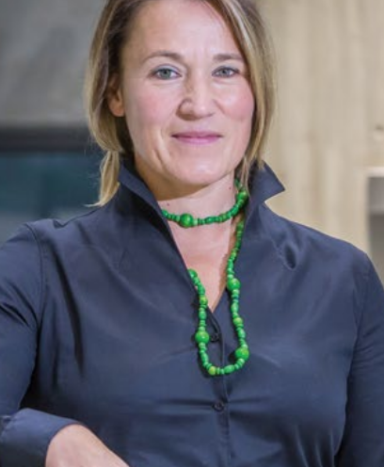
Katariina Simonen is Adjunct Professor at the National Defense University, visiting Fellow at the University of Helsinki, Dept. of World Cultures and Member of Pugwash Council. She serves also as Senior Ministerial Counselor at the Finnish Government. She holds a Ph.D. in international law from University of Turku (2010). Her research interests include Iran nuclear issues, disarmament and non-proliferation negotiations, with focus on the Baltic and the Arctic and Pugwash history. Her latest book is Weapons of Mass Destruction and Arms Control. The Development and Erosion of Arms Control Architecture (NDU Doria 2023).
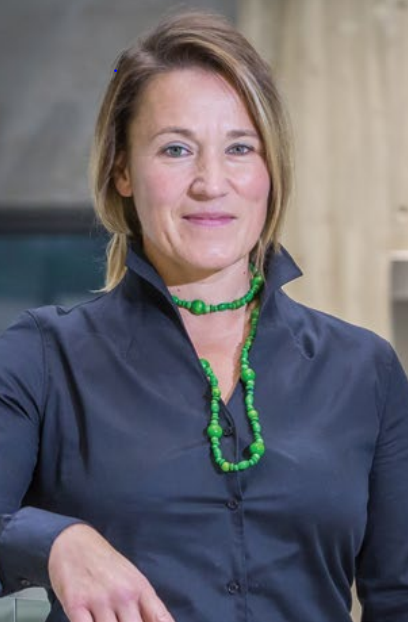
Katariina Simonen is Adjunct Professor at the National Defense University, visiting Fellow at the University of Helsinki, Dept. of World Cultures and Member of Pugwash Council. She serves also as Senior Ministerial Counselor at the Finnish Government. She holds a Ph.D. in international law from University of Turku (2010). Her research interests include Iran nuclear issues, disarmament and non-proliferation negotiations, with focus on the Baltic and the Arctic and Pugwash history. Her latest book is Weapons of Mass Destruction and Arms Control. The Development and Erosion of Arms Control Architecture (NDU Doria 2023).
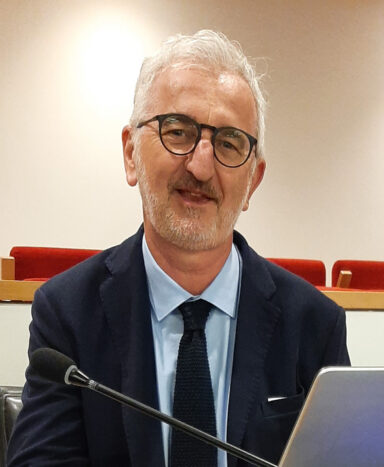
Gian Piero Siroli, subnuclear physicist, teaches at the Dept of Physics and Astronomy at University of Bologna and carries out research at CERN in Geneva. Among other courses, he teaches “Cybersecurity and Cyberwar” at the Master's Degree in International Relations at Dept of Political and Social Sciences UNIBO; on this topic he has held courses since year 2000 at University of Pisa, and has regular seminar activity at various levels. Siroli worked for the University of Maryland (College Park, USA), CNR (IT) and CERN (Geneva). Gian Piero Siroli is involved in the Pugwash activities coordinating initiatives on ICT and international security, representing Pugwash in the UN "Open-Ended Working Group on security of and in the use of information and communications technologies”. GPS is a member of USPID, ISODARCO, of the scientific committee of Computational Social Science Center Center (CSSC) of University of Bologna and IRIAD Review. Currently Gian Piero Siroli is Computer Security Officer of the large High Energy Physics international collaboration CMS at CERN, equipped with extended computing and network infrastructures at intercontinental level.
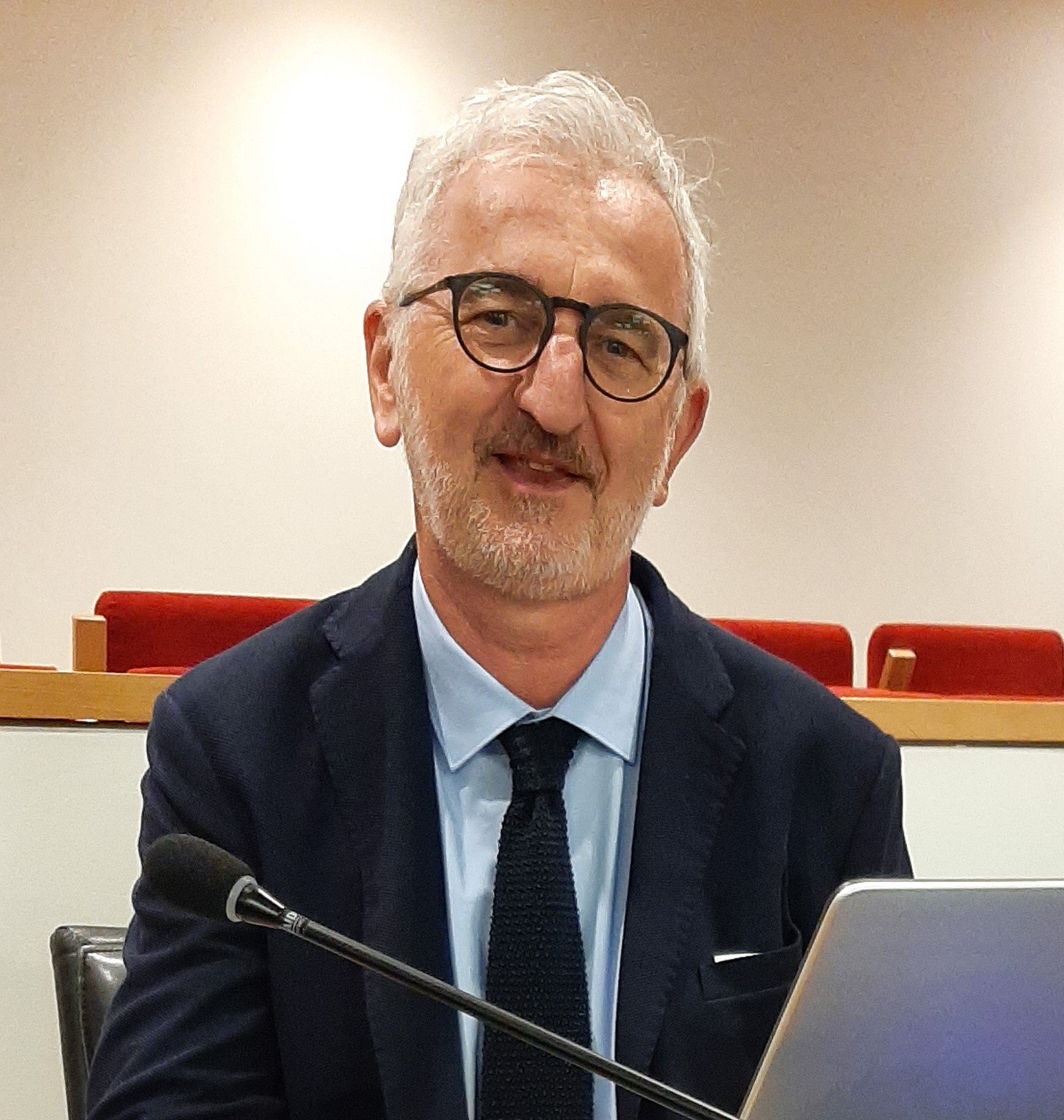
Gian Piero Siroli, subnuclear physicist, teaches at the Dept of Physics and Astronomy at University of Bologna and carries out research at CERN in Geneva. Among other courses, he teaches “Cybersecurity and Cyberwar” at the Master's Degree in International Relations at Dept of Political and Social Sciences UNIBO; on this topic he has held courses since year 2000 at University of Pisa, and has regular seminar activity at various levels. Siroli worked for the University of Maryland (College Park, USA), CNR (IT) and CERN (Geneva). Gian Piero Siroli is involved in the Pugwash activities coordinating initiatives on ICT and international security, representing Pugwash in the UN "Open-Ended Working Group on security of and in the use of information and communications technologies”. GPS is a member of USPID, ISODARCO, of the scientific committee of Computational Social Science Center Center (CSSC) of University of Bologna and IRIAD Review. Currently Gian Piero Siroli is Computer Security Officer of the large High Energy Physics international collaboration CMS at CERN, equipped with extended computing and network infrastructures at intercontinental level.
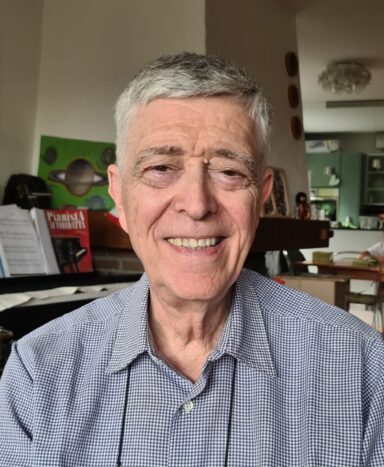
Giuliano Colombetti is a Physicist, retired Research Director at CNR (National Research Council) now CNR Research Associate; former Secretary of Pisa Section of USPID and currently member of the Scientific Council of USPID.
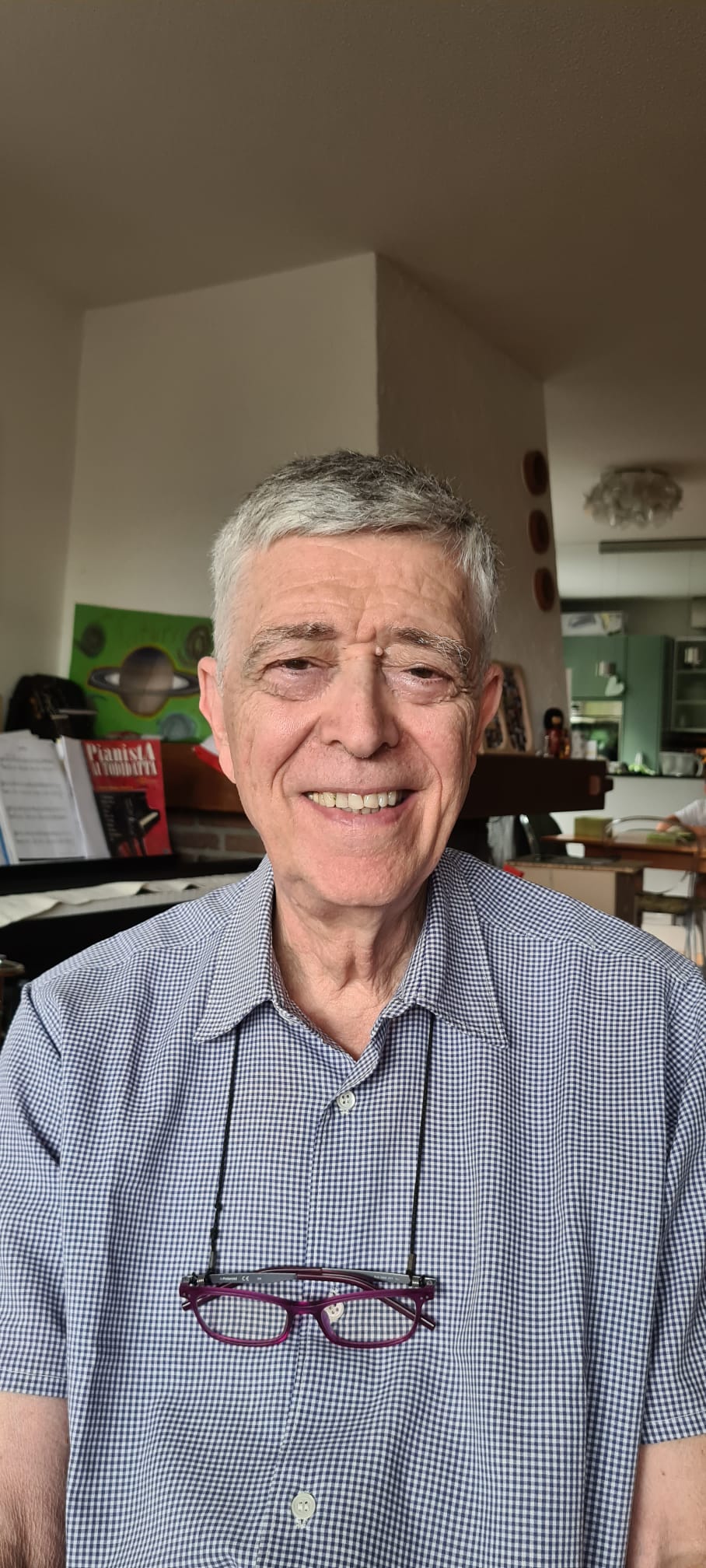
Giuliano Colombetti is a Physicist, retired Research Director at CNR (National Research Council) now CNR Research Associate; former Secretary of Pisa Section of USPID and currently member of the Scientific Council of USPID.
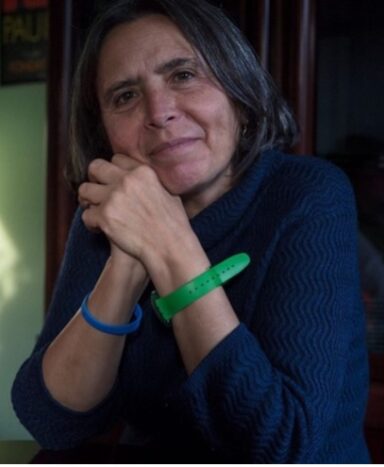
Angela Corcelli University of Bari Aldo Moro, Associate professor of Human Physiology at the School of Medicine in Bari. She was principal investigator of researches to develop innovative hybrid biological devices to reveal landmines. Telethon researcher. Coordinator of the Brain Bee competition for the students of Regione Puglia. Director of the Peace Center of the University of Bari from 2013 to 2019. USPID Scientific Board member. RUniPace scientific board member.
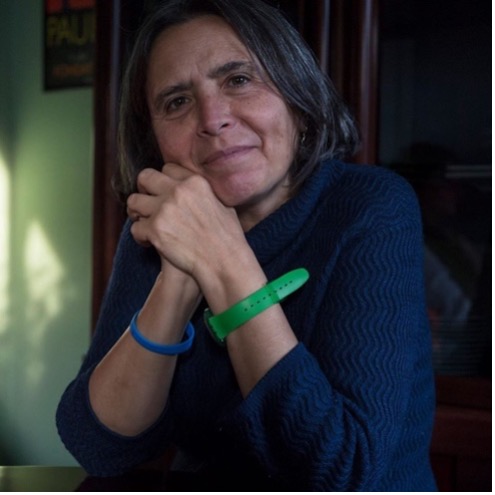
Angela Corcelli University of Bari Aldo Moro, Associate professor of Human Physiology at the School of Medicine in Bari. She was principal investigator of researches to develop innovative hybrid biological devices to reveal landmines. Telethon researcher. Coordinator of the Brain Bee competition for the students of Regione Puglia. Director of the Peace Center of the University of Bari from 2013 to 2019. USPID Scientific Board member. RUniPace scientific board member.
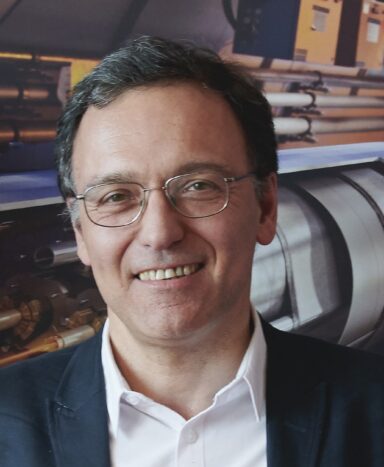
Francesco Forti is professor of physics at the University of Pisa. He has participated in particle physics experiments in various international collaborations at CERN (Geneva), SLAC (Stanford), KEK (Japan). He has received many appointments in scientific review committees both for Italian and international organizations. Since 2019 he is the National Secretary of USPID.
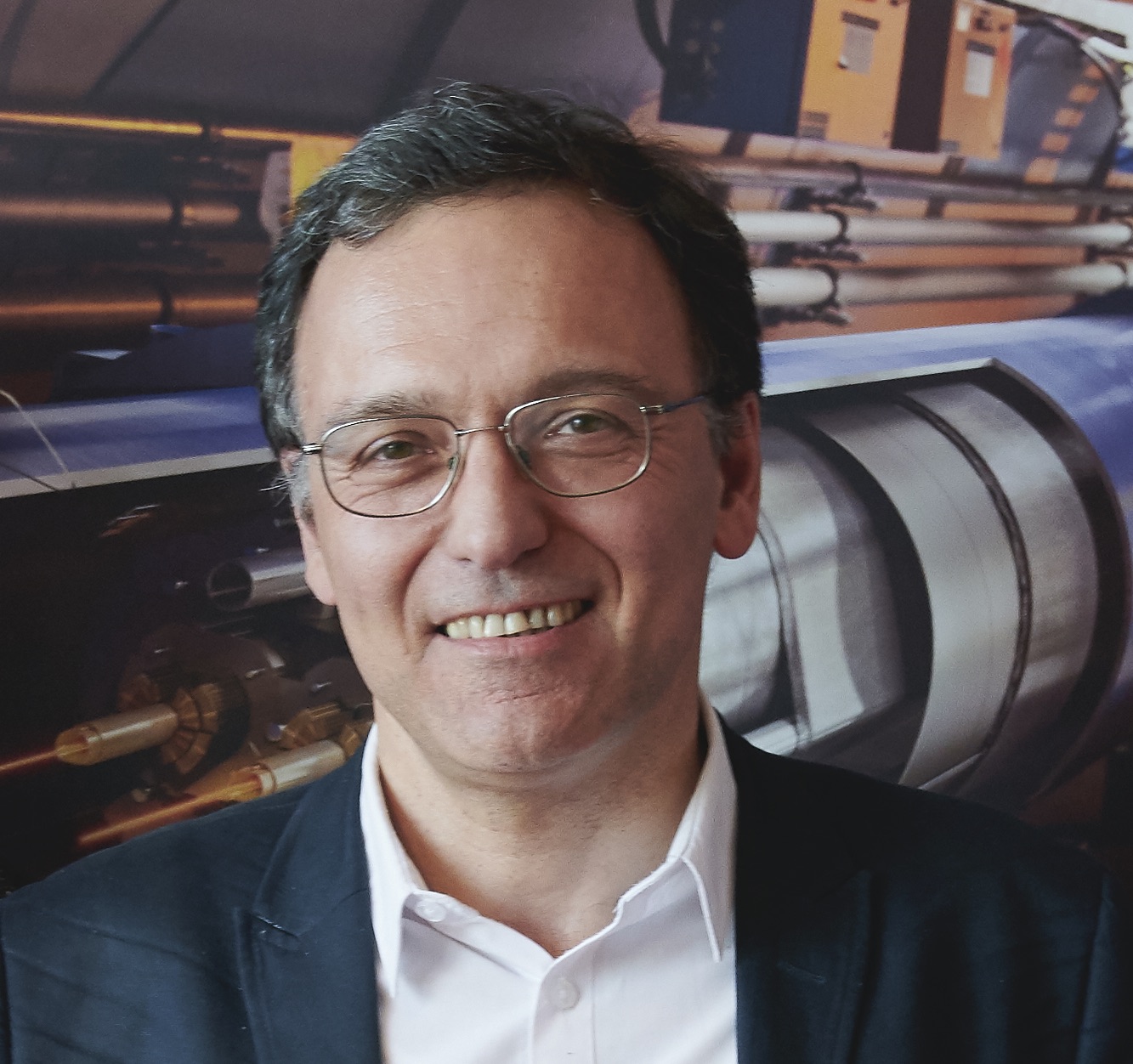
Francesco Forti is professor of physics at the University of Pisa. He has participated in particle physics experiments in various international collaborations at CERN (Geneva), SLAC (Stanford), KEK (Japan). He has received many appointments in scientific review committees both for Italian and international organizations. Since 2019 he is the National Secretary of USPID.
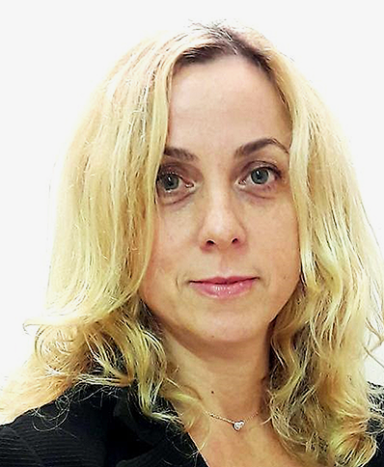
Barbara Gallo journalist since 2016, she graduated in Sociology from the University of Rome "La Sapienza". Since 2005 she has been dealing with issues related to the geopolitics of conflicts in the area of the Asian subcontinent. In the past she collaborated with UNICEF Italia in advocacy activities, with the Fondazione Pangea an Italian NGO which operates in Afghanistan, India and Italy dealing specifically with the situation of women in Afghanistan. Since 2019, in the role of Head of International Relations, she has followed the Stop Killer Robots Campaign, involving in the UN debate on Lethal Autonomous Weapons, and she is responsible for the relations with the European Non-Proliferation and Disarmament Consortium. She has also participated as a speaker at several international conferences on the issues of international military spending, autonomous lethal weapons and weapons of mass destruction. She is the author of numerous articles on topics such as human rights, the situation of women and children in conflict areas and weapons of mass destruction. She lives and works in Rome.
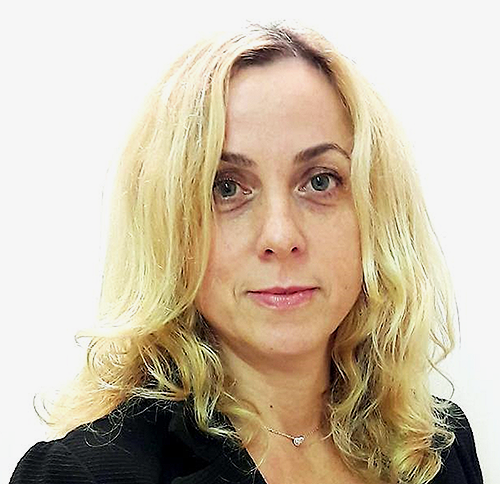
Barbara Gallo journalist since 2016, she graduated in Sociology from the University of Rome "La Sapienza". Since 2005 she has been dealing with issues related to the geopolitics of conflicts in the area of the Asian subcontinent. In the past she collaborated with UNICEF Italia in advocacy activities, with the Fondazione Pangea an Italian NGO which operates in Afghanistan, India and Italy dealing specifically with the situation of women in Afghanistan. Since 2019, in the role of Head of International Relations, she has followed the Stop Killer Robots Campaign, involving in the UN debate on Lethal Autonomous Weapons, and she is responsible for the relations with the European Non-Proliferation and Disarmament Consortium. She has also participated as a speaker at several international conferences on the issues of international military spending, autonomous lethal weapons and weapons of mass destruction. She is the author of numerous articles on topics such as human rights, the situation of women and children in conflict areas and weapons of mass destruction. She lives and works in Rome.
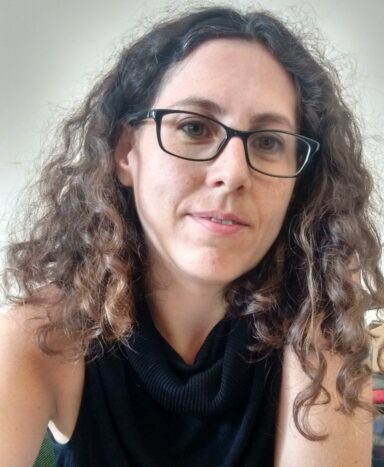
Floriana Giannuzzi is Physics researcher at INFN (National Institute for Nuclear Physics) in Bari. Her research activity is focused on particle physics and the theory of strong interactions.
She is member and currently secretary of the Bari Section of USPID.
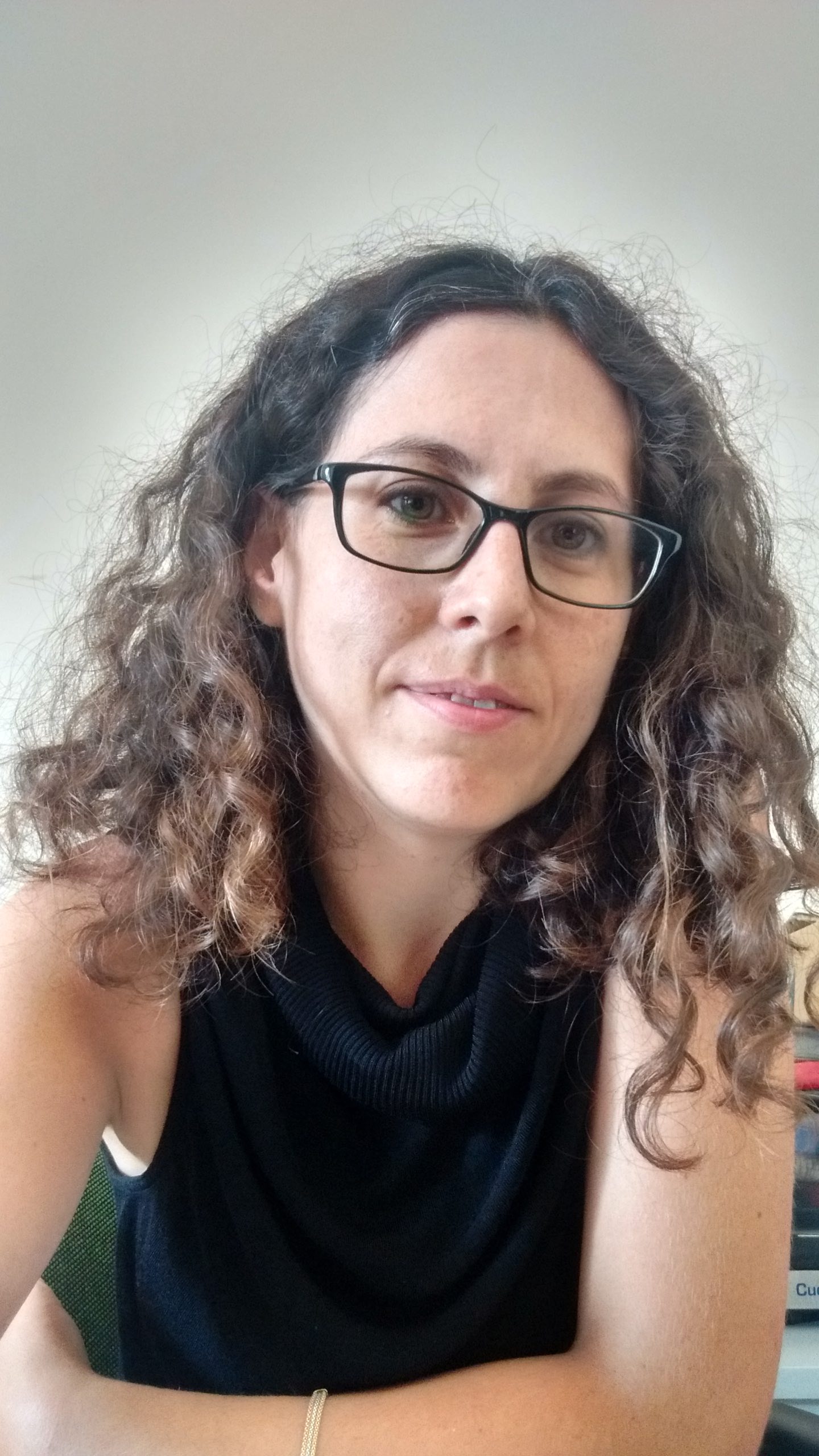
Floriana Giannuzzi is Physics researcher at INFN (National Institute for Nuclear Physics) in Bari. Her research activity is focused on particle physics and the theory of strong interactions.
She is member and currently secretary of the Bari Section of USPID.
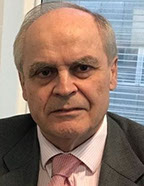
Peter Jenkins was a member of the British Diplomatic Service for 33 years. He served in Vienna (twice), Washington, Paris, Brasilia, Geneva and London. For his last assignment, in 2001, he went as Ambassador to the United Kingdom Mission to the IAEA and UN in Vienna, in which he had first served in the 1970s. There his primary focus was on the nuclear aspects of international peace and security, especially Iran’s nuclear programme. He and his French counterparts piloted ten resolutions on Iran for adoption by the IAEA Board of Governors. In 2009 he became a founding member of The Ambassador Partnership, an international corporate diplomacy network. Since 2017 he has been chairman of the British branch of Pugwash Conferences on Science and World Affairs.

Peter Jenkins was a member of the British Diplomatic Service for 33 years. He served in Vienna (twice), Washington, Paris, Brasilia, Geneva and London. For his last assignment, in 2001, he went as Ambassador to the United Kingdom Mission to the IAEA and UN in Vienna, in which he had first served in the 1970s. There his primary focus was on the nuclear aspects of international peace and security, especially Iran’s nuclear programme. He and his French counterparts piloted ten resolutions on Iran for adoption by the IAEA Board of Governors. In 2009 he became a founding member of The Ambassador Partnership, an international corporate diplomacy network. Since 2017 he has been chairman of the British branch of Pugwash Conferences on Science and World Affairs.
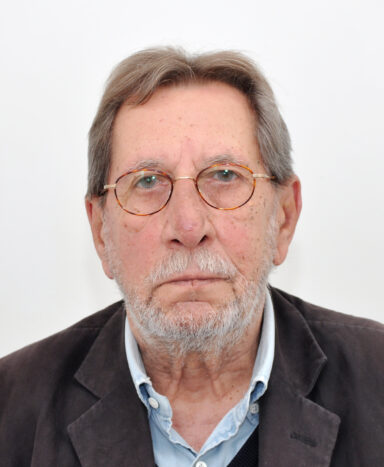
Francesco Lenci is a Physicist, retired Research Director at CNR (National Research Council) now CNR Research Associate; former Director of CNR Biophysics Institute (from 1990 to 2002) and former Member of CNR General Scientific Council (from 2006 to 2011). Senior Fellow of the Centro Interdisciplinare Scienze per la Pace (CISP, Pisa University); Member of the Scientific Council of USPID, USPID National Secretary from 1983 to 1990; Member of the "Initiative Committee" preparing the Moscow Forum of 1987; Member of Pugwash Council and of Accademia dei Lincei Working Group SICA (International Security and Arms Control), Co-founder of GI-STS (Interdisciplinary Group on Science, Technology and Society of CNR Campus in Pisa, CNR/GI-STS).
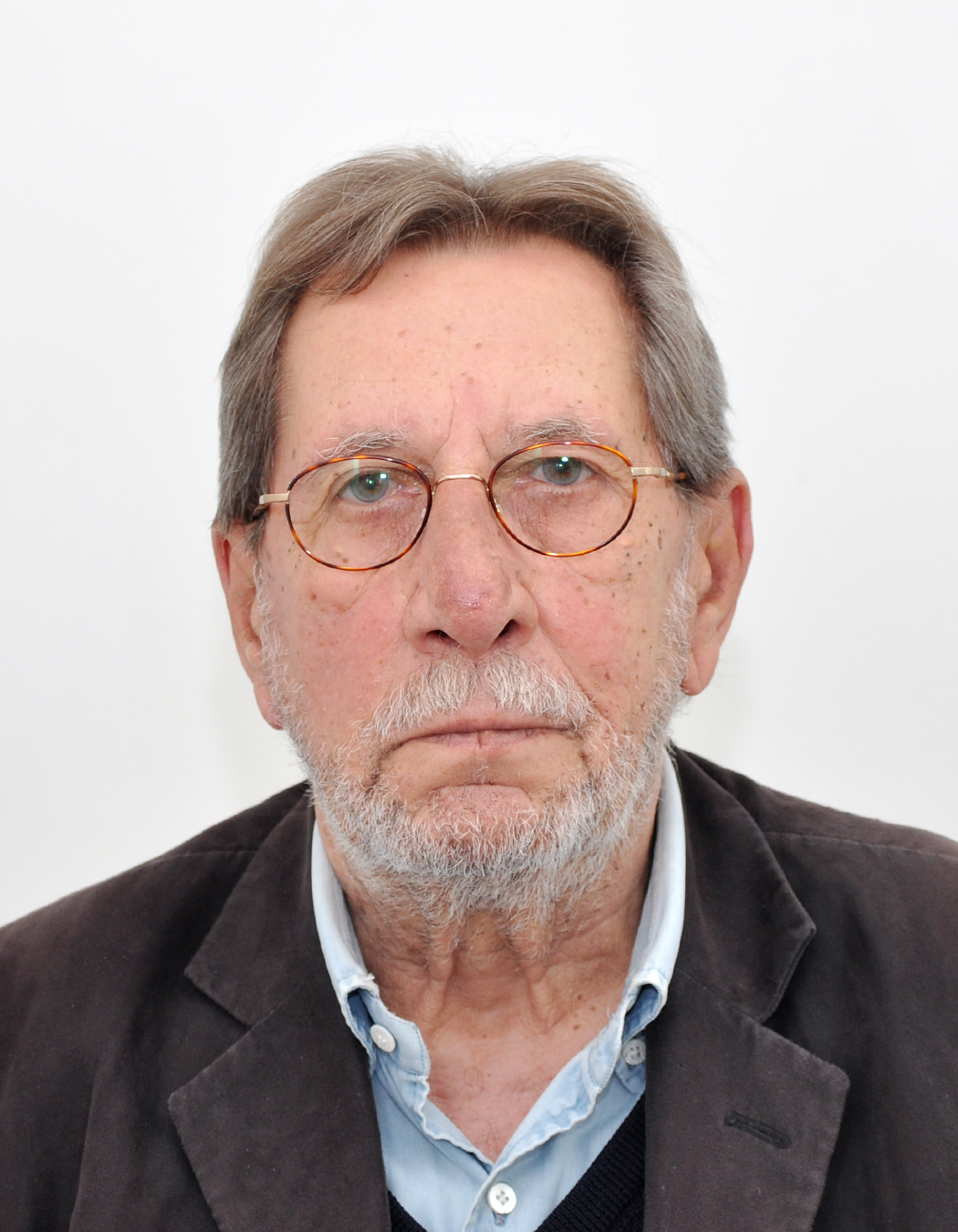
Francesco Lenci is a Physicist, retired Research Director at CNR (National Research Council) now CNR Research Associate; former Director of CNR Biophysics Institute (from 1990 to 2002) and former Member of CNR General Scientific Council (from 2006 to 2011). Senior Fellow of the Centro Interdisciplinare Scienze per la Pace (CISP, Pisa University); Member of the Scientific Council of USPID, USPID National Secretary from 1983 to 1990; Member of the "Initiative Committee" preparing the Moscow Forum of 1987; Member of Pugwash Council and of Accademia dei Lincei Working Group SICA (International Security and Arms Control), Co-founder of GI-STS (Interdisciplinary Group on Science, Technology and Society of CNR Campus in Pisa, CNR/GI-STS).
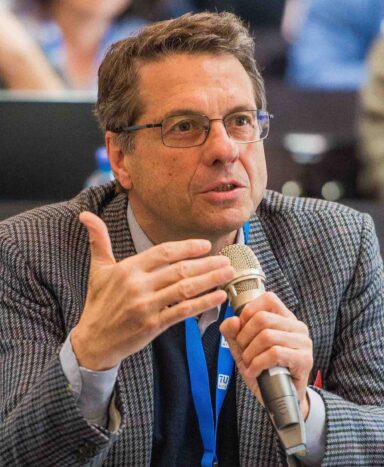
Guglielmo Tamburrini (PhD 1987, Columbia University) is Philosophy of Science and Technology Professor at Universita’ di Napoli Federico II in Italy. His main research interests concern ELSE (Ethical, Legal, and SocioEconomic) issues arising in AI and robotics. He acted as coordinator of the first EC project on the ethics of robotics (CA ETHICBOTS, 2005-2008, VI FP). In 2014 he was awarded the Giulio Preti International Prize by the Regional Parliament of Tuscany (Italy) for his research and teaching activities on ethical and social implications of ICT and robotic technologies. USPID Scientific Board member and member of ICRAC (International Committee for Robot Arms Control).
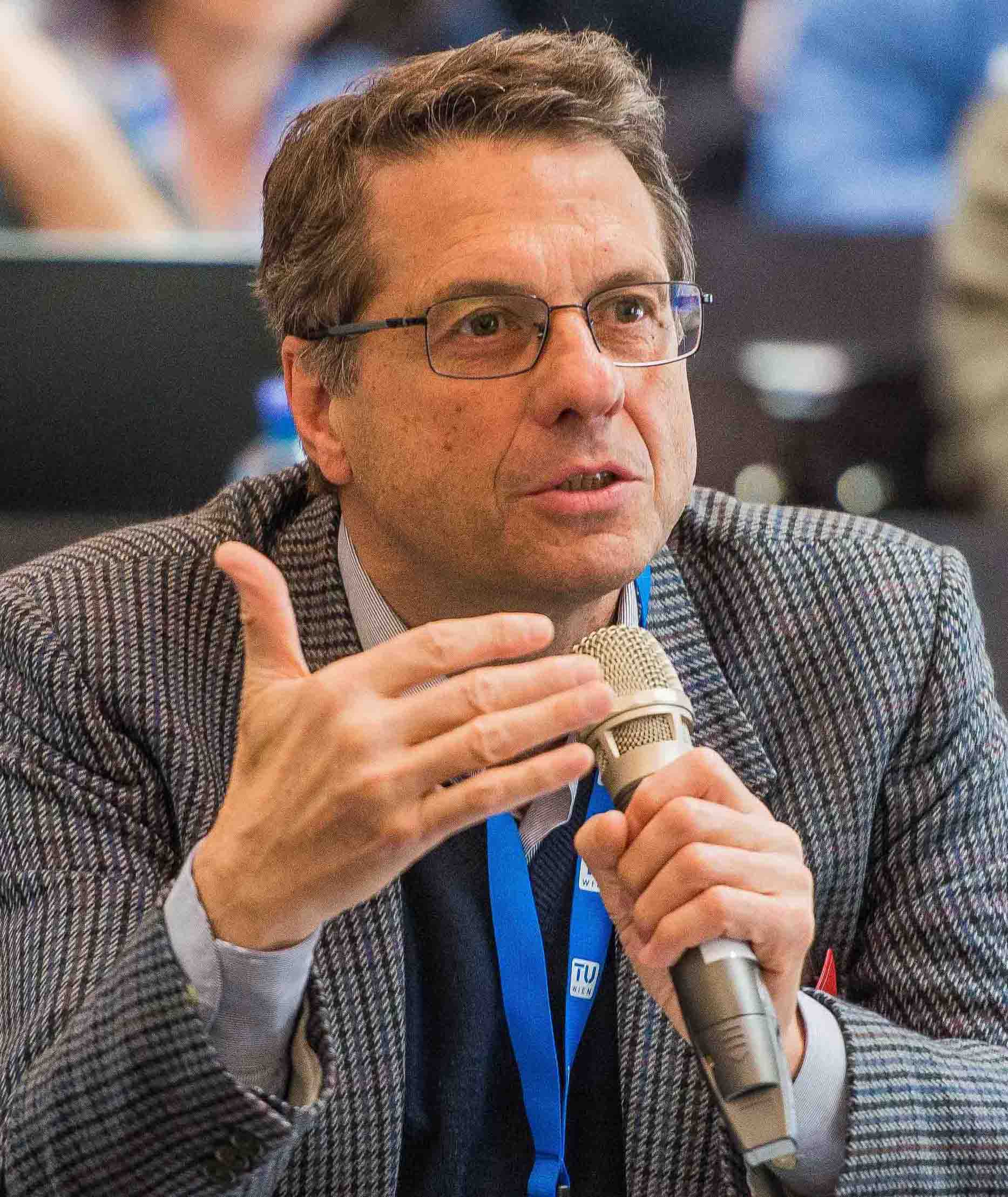
Guglielmo Tamburrini (PhD 1987, Columbia University) is Philosophy of Science and Technology Professor at Universita’ di Napoli Federico II in Italy. His main research interests concern ELSE (Ethical, Legal, and SocioEconomic) issues arising in AI and robotics. He acted as coordinator of the first EC project on the ethics of robotics (CA ETHICBOTS, 2005-2008, VI FP). In 2014 he was awarded the Giulio Preti International Prize by the Regional Parliament of Tuscany (Italy) for his research and teaching activities on ethical and social implications of ICT and robotic technologies. USPID Scientific Board member and member of ICRAC (International Committee for Robot Arms Control).
USPID is an italian non-profit association of scientists and researchers founded in 1982 with the objective of providing information and analyses on arms control and disarmament, including information on the environmental impact and human costs of development and dissemination of arms. USPID members are convinced that this task is a moral imperative and that it is part of their social responsibility. USPID organizes public meetings and seminars in several cities in Italy, provides Members of the Parliament as well as Government with analyses on current issues in International Relations and, since 1985, every other year, organizes the International Castiglioncello Conference on major issues concerning international security. A list of past events can be found here.
The conference is jointly organized by:
In collaboration with:
![]() Amministrazione Comunale di Rosignano Marittimo
Amministrazione Comunale di Rosignano Marittimo
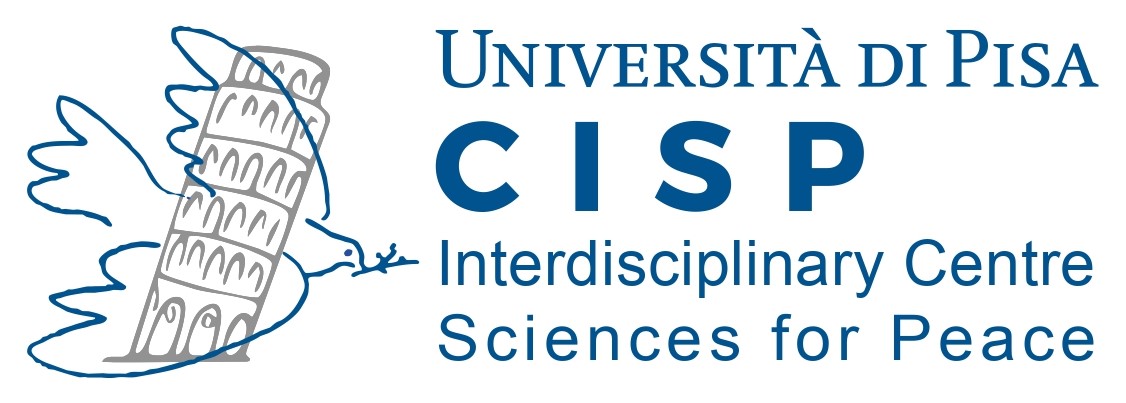 Centro Interdisciplinare di Scienze per la Pace dell’Università di Pisa (CISP)
Centro Interdisciplinare di Scienze per la Pace dell’Università di Pisa (CISP)![]() Consiglio Nazionale delle Ricerche
Consiglio Nazionale delle Ricerche
Centro Interdipartimentale di Ricerche per la Pace “Giuseppe Nardulli” dell’Università degli studi di Bari “Aldo Moro” (CIRP)
International School On Disarmament And Research On COnflicts (ISODARCO, fondata nel 1966 da Edoardo Amaldi e Carlo Schaerf)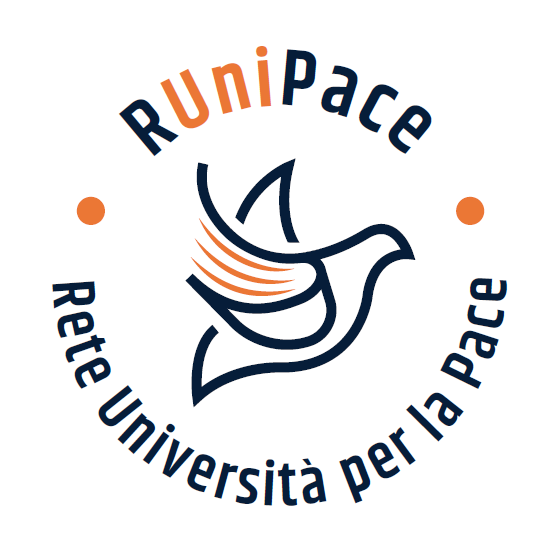 Runipace
Runipace
Associazione Frontier Detectors for Frontier Physics
Associazione Ricerca Fondamentale in Fisica.
See what other people are saying about us